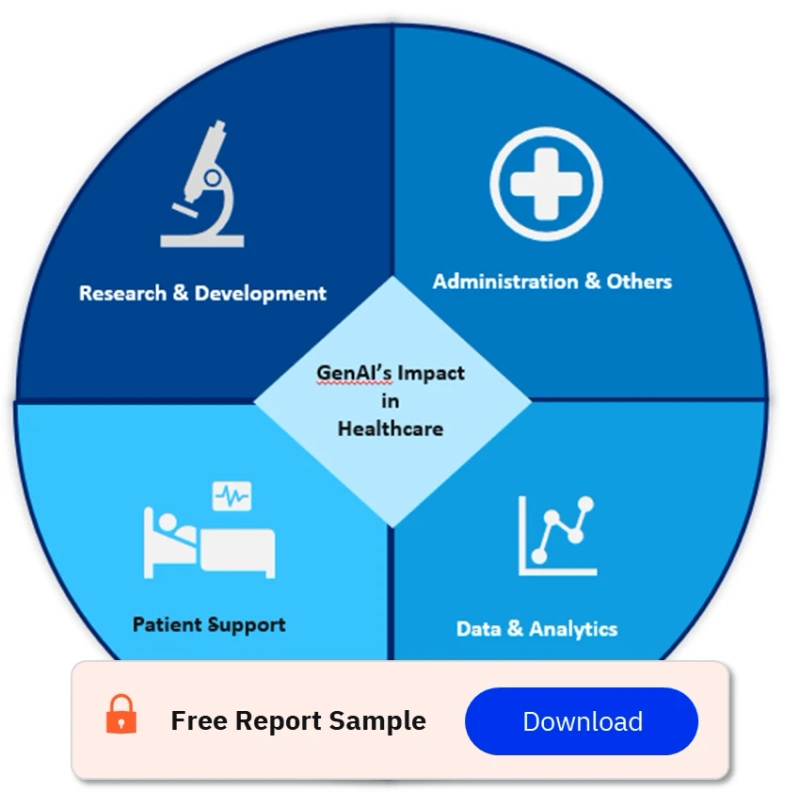Generative AI is revolutionizing various sectors, and healthcare is no exception. By leveraging advanced algorithms and deep learning, generative AI is transforming patient care, medical research, and healthcare administration. In this comprehensive article, we will explore the multifaceted impact of generative AI in healthcare, highlighting its benefits, applications, and the future it promises.
What is Generative AI?
Generative AI refers to a class of artificial intelligence that can generate new content, such as text, images, and audio, by learning patterns from existing data. Unlike traditional AI, which relies on predefined rules, generative AI uses neural networks to understand and recreate complex data structures, making it a powerful tool for innovation in various fields, including healthcare.
Key Benefits of Generative AI in Healthcare
Enhanced Diagnostic Accuracy: Generative AI can analyze medical images, such as X-rays, MRIs, and CT scans, with remarkable precision. By identifying patterns and anomalies that might be overlooked by human eyes, AI can aid in early detection of diseases like cancer, leading to timely and effective treatment.
Personalized Treatment Plans: By analyzing a patient’s genetic makeup, medical history, and lifestyle, generative AI can create personalized treatment plans. This approach not only improves patient outcomes but also reduces the likelihood of adverse reactions to medications.
Accelerated Drug Discovery: Traditional drug discovery is a time-consuming and expensive process. Generative AI can expedite this by predicting molecular structures and simulating their interactions with human cells. This reduces the time and cost associated with bringing new drugs to market.
Streamlined Administrative Tasks: Generative AI can automate routine administrative tasks, such as scheduling appointments, managing medical records, and processing insurance claims. This allows healthcare professionals to focus more on patient care and less on paperwork. Buy the Full Report for More Insights on the Impact of Gen AI in healthcare, Download a Free Report Sample
Applications of Generative AI in Healthcare
Medical Imaging and Diagnostics: AI algorithms can enhance medical imaging techniques, providing clearer and more detailed images. For example, Google's DeepMind has developed AI systems that can diagnose eye diseases from retinal scans with an accuracy comparable to human experts.
Virtual Health Assistants: AI-powered virtual assistants can provide patients with instant medical advice, schedule appointments, and monitor their health. These assistants can also remind patients to take their medications and follow post-treatment care plans.
Predictive Analytics: Generative AI can predict disease outbreaks, patient readmissions, and other critical healthcare events by analyzing vast amounts of data from various sources. This helps healthcare providers take proactive measures to prevent or mitigate these events.
Robotic Surgery: AI-powered robots assist surgeons in performing complex procedures with high precision. These robots can analyze real-time data during surgery, providing insights and recommendations to enhance surgical outcomes.
Challenges and Ethical Considerations
While the potential of generative AI in healthcare is immense, it also presents several challenges and ethical considerations:
Data Privacy and Security: The use of AI in healthcare involves handling sensitive patient data. Ensuring the privacy and security of this data is paramount to prevent breaches and misuse.
Bias and Fairness: AI algorithms can sometimes exhibit biases based on the data they are trained on. It is crucial to ensure that these systems are fair and do not perpetuate existing inequalities in healthcare.
Regulatory Compliance: The integration of AI in healthcare must comply with regulatory standards and guidelines to ensure patient safety and efficacy of treatments.
Human Oversight: While AI can assist in decision-making, human oversight remains essential. Healthcare professionals must be able to interpret and validate AI-generated insights to ensure optimal patient care.
The Future of Generative AI in Healthcare
The future of generative AI in healthcare looks promising. As technology continues to advance, we can expect even more sophisticated AI applications that will further improve patient outcomes and healthcare efficiency. Here are some potential future developments:
AI-Driven Precision Medicine: The integration of AI with genomics and other omics data will enable even more precise and personalized treatments for patients.
Telemedicine and Remote Monitoring: AI-powered telemedicine platforms will provide high-quality medical care to patients in remote areas, improving access to healthcare services.
AI in Mental Health: Generative AI can help in diagnosing and treating mental health conditions by analyzing speech patterns, facial expressions, and other biomarkers.
Integration with Wearable Devices: AI will play a crucial role in analyzing data from wearable health devices, providing real-time insights and early warnings for potential health issues.
Conclusion
Generative AI is poised to revolutionize healthcare by enhancing diagnostic accuracy, personalizing treatments, accelerating drug discovery, and streamlining administrative tasks. While challenges and ethical considerations remain, the benefits of AI in healthcare are undeniable. As we move forward, it is essential to harness the power of generative AI responsibly to create a healthier and more efficient future for all.



